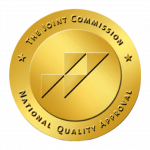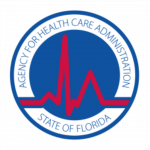Addiction is a very lonely place. Addicts push the people they love away because of their addiction, however, this is the support system they need the most. Many rehab and treatment centers, like the Harm Reduction Center, offer family therapy in addiction treatment. This not only helps support the addict but also provides their family with the resources to help them succeed in their recovery.
What is Family Therapy
Addiction does not only affect the addict but the entire family. Addiction brings a great deal of stress to the family members of an addict. Thus, resulting in unhealthy coping strategies as they try to maintain peace in the household. Sadly, the family unit becomes fragile and dysfunctional, thus, further contributing to the addiction as the family adopts destructive behaviors as a result.
That being said, there are programs that help families cope and understand the best way to support their loved one going through the treatment and recovery process. Family therapy in addiction treatment helps use the support and strength of the people closest to you to help you live without drugs or alcohol. These sessions often take the form of education, teaching family members about addiction and how to properly support and heal. These sessions also allow family members to ask questions and open up dialogue about how this is affecting them and learn how to move forward.
Issues that may be addressed and discussed in treatment include:
- Parenting skills
- Abuse
- Depression
- Family conflict
- Unemployment
- Family roles / creating boundaries
- Ways to improve communication
- Rebuild trust
- Learning harmful triggers
Unhealthy Behaviors of Families
It is easy to begin coping with a loved one suffering from addiction in an unhealthy way. This can include denial, enabling, and codependency.
Denial
Denial is a common, and very unhealthy way to cope with a loved one living with an addiction. For example, parents of a child suffering from an addiction may not want to accept the reality that their child has a substance abuse problem. Instead of addressing it properly, they deny it and push it under the rug until something severe happens like an overdose.
Denial also causes secrecy within the family system. Constantly having to cover up or pick up the pieces of the addict’s destruction and keeping secrets to hide the real issue. Thus, tearing families apart and causing distance between each other.
Denial also leads us to our second unhealthy behavior in families of an addict, enabling.
Enabling
When in denial that your family member has an addiction problem the behaviors you think are helping, are actually enabling the behavior. Enabling can include using alcohol or drugs with a loved one because you think you can keep their use at bay. Protecting the image of your loved ones by covering up their messes, making excuses for addiction-created behaviors, and creating a facade of normalcy in the home.
Codependency
Codependency is an emotional and behavioral condition that includes learned thoughts, attitudes, and behaviors. These attributes lead to neglecting your own needs and desires because you are obsessively concerned with your loved ones’ issues. A codependency behavior includes worrying constantly about your loved one’s addiction, so much so it consumes your life. Living in denial about the addiction and lying to others about the substance abuse or avoiding people altogether.
Sadly, when in a codependent relationship with an addict, the individual can end up engaging in their own unhealthy behaviors to cope. This includes drinking, drugs, and self-harm.
Benefits of Family Therapy
There are many studies and research that show the positive impact of family therapy in addiction treatment. Some of these benefits include:
- Motivating and supporting your loved one throughout treatment
- Having a better understanding of the nature of addiction through education and learning the reasons behind the behaviors.
- Learning how to help a loved one stay sober after treatment
- Improving the communication between you and your loved one
- Learning the warning signs of relapse and avoiding triggers or enabling behavior
- Regaining trust and forgiveness
- Learning how to set boundaries and follow through with expectations
Addiction treatment is a big step that doesn’t have to be faced alone. At the Harm Reduction Center in Boynton Beach, Florida, family therapy is a big part of the treatment process. The HARC team knows the importance of the support of your loved ones during your treatment program. HARC helps teach the appropriate skills and tools to the families of addicts to not only help support and encourage their loved one but understand addiction and cope with it as well.
If you know someone who is struggling with an addiction and want to take the first step to help them recover, contact us today.














